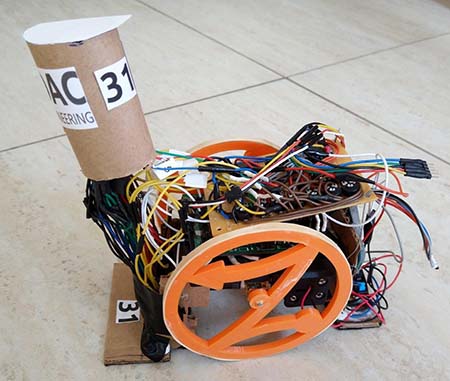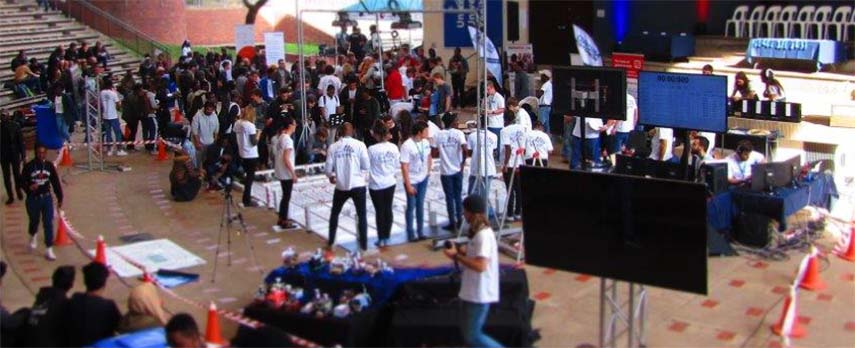The annual Tuks Robot Race Day saw more than 70 autonomous robotic vehicles take to the track to compete for the top spot.
Now in its seventh year, the event coordinated by the University of Pretoria’s Faculty of Engineering, Built Environment and Information Technology has grown in leaps and bounds with more students getting involved and showcasing their innovation, computing, programming and engineering skills.
Professor Tania Hanekom, function head for undergraduate studies at the University of Pretoria, says that providing world-class education to our students is what they strive for across all departments and the Robot Race Day is just one of the ways education is enhanced.
“Our annual Robot Car Race provides a platform to stimulate curiosity and creativity, which is crucial for the innovation and entrepreneurship that a career in engineering demands,” she says. “The project guides aspiring engineers through a carefully planned process to develop a fundamental set of engineering skills, which include hardware and software design skills, systems integration skills, the ability to work and function in a team, time management skills, perseverance and the good old indispensable ‘engineering gut feeling’ which comes only with experience in the execution of engineering projects.”
Prof Hankom adds that the educational objectives of the Robot Race Day is strongly supported by the university’s partnerships with industry, which provide the necessary resources to maintain this flagship event.
“On behalf of the students and the engineering faculty, I would like to thank RS Components South Africa for assisting us with the various components, batteries and support over the years. We look forward to future engagements with RS,” she adds.

The winning robot.
The Tuks Robot Race Day offers students the opportunity to put theory into practice. Students are required to build autonomous robotic vehicles, with a sensor system able to detect specific colours on the multi-coloured track-which is developed as part of their analogue electronics module. The Race Day also gives them a platform to work as a team and to demonstrate innovation and technical skills in developing these robots.
The 2019 Robot Race Day winners Gerhard de Clercq and Herman Lombard beat 78 other competitors with a winning time of 22 seconds.


